Shattering the Trump Illusion

The crisis of our age is not so much political as epistemological. It’s about how people think, or rather the many failures in how people think.
The terms in which people are talking about this right now is a concern over our “information environment”: the distorted ways people get their information about politics, which is filtered through partisan cable TV news and social media algorithms.
Simply put, Donald Trump won last November partly because many people did not know or did not believe what was actually happening in the world and what Trump was promising to do. They didn’t have the information or the right mindset to make a rational projection of what he would be like if he returned. Indeed, many of them seemed to have forgotten what he was like in his first term. So they had to see it play out in concrete reality. Now that they have seen it, ten months into his second term, they really don’t like it.
I think this explains most of what happened in yesterday’s off-year elections, which were a blowout in favor of Democrats and a clear referendum against Donald Trump.
Among other smaller victories, Democrats prevailed by wide margins in the Virginia and New Jersey governor’s races, while gaining a much larger majority in Virginia’s House of Delegates. Zohran Mamdani defeated Andrew Cuomo in New York City—which, to be honest, was more of an internecine battle among Democrats. And California overwhelmingly approved its partisan redistricting plan in a tit-for-tat against a blatant partisan gerrymander in Texas.
The Trump Illusion
I will discuss each of those results in turn, but looming over all of this is the public’s opinion of Donald Trump. He has an irresistible impulse to make himself the central character and dominant presence in American politics. The unfortunate result for his party is that they now rise and fall with him—and given how spinelessly they have conformed themselves to Trump’s whims, they have no one to blame but themselves.
A Washington Post poll from a few days ago foreshadowed Tuesday’s results.
Americans broadly disapprove of how President Donald Trump is handling his job, and a majority say he has gone too far in exercising the powers of his office, according to a Washington Post-ABC News-Ipsos poll. But a year out from the 2026 midterm elections, there is little evidence that negative impressions of Trump’s performance have accrued to the benefit of the Democratic Party, with voters split almost evenly in their support for Democrats and Republicans.
Overall, 41 percent of Americans say they approve of the job Trump is doing, while 59 percent disapprove. That level of disapproval is the highest in a Post-ABC poll since January 2021, a week after the attack on the Capitol. Trump’s support among self-identified Republicans remains strong at 86 percent, while 95 percent of Democrats disapprove. Among independents, Trump’s approval rating is 30 percent, while his disapproval mark is 69 percent.
Across eight issues that include the economy, immigration, tariffs, managing the federal government, crime, and conflicts in the Middle East and Ukraine, most Americans say they disapprove of how he is handling each of them.
There are two really interest results here. One is that Trump is now losing independent voters—who are the largest voting bloc these days—by a 70-30 margin. The other is that “a majority say he has gone too far in exercising the powers of his office,” despite the fact that Democratic leaders in Congress have been extremely tentative in trying to make that a central issue. Now, I’m just a simple country lawyer political commentator, but it strikes me that if voters are beginning to understand and care about Trump’s attacks on the American system, Democrats might want to elevate that issue in their campaigns.
The only thing this report got wrong was when it said, “there is little evidence that negative impressions of Trump’s performance have accrued to the benefit of the Democratic Party.” Well, there’s a bunch of evidence now.
Donald Trump has had a strange political career. He tends to become popular with the American public only for very short periods of time and only by a small margin—but two times now, that very short period has happened right at an election. Look at the graph of polls for his matchup with Hillary Clinton in 2016, where a last-minute surge brought him within range of an Electoral College win.
Then see how in his first term he languishes in unpopularity, regularly bottoming out just a little below his current level, with the public disapproving of him by nearly two-to-one margins (particularly after his “very fine people” remarks about neo-Nazis in 2017, and after January 6, 2021).
But then look at his match-up against Kamala Harris last year, where once again he managed to pop up in the polls at the very last minute, just enough to eke out a very narrow win.
But then once he’s in office, it’s back to his usual form: a widely unpopular president pursuing widely unpopular policies.
I mention this history because many people—particularly in the media—have really allowed themselves to be gaslit into thinking the 2024 election was a cultural and political turning point, a “vibe shift” toward Trump’s nationalist-authoritarian outlook. Tyler Cowen announced it in July of 2024, and centrist liberals like Ezra Klein and Matt Yglesias took it very seriously, with Yglesias proclaiming, “It feels like American culture is primed to turn decisively to the right.”
Look, I’ve made some wrong political and cultural predictions in my career, so I’m not going to be too tough on Yglesias. But I think we can see in retrospect just how wrong this was. The “vibe shift” was supposed to be happening especially among the young, and even more so among Gen Z men, as a backlash against “wokeness.” But on Tuesday, we saw Gen Z women voting for Democrats by huge margins—and Gen Z men also voting for Democrats by smaller but still decisive margins.
About 8 in 10 women under 30 supported Sherrill in New Jersey, compared to just over half of men under 30. That was similar in Virginia, where roughly 8 in 10 women under 30 voted for Spanberger and about 6 in 10 men under 30 did.
I can’t help adding that a lot of the people proclaiming a supposed vibe shift were the same people who were very insistent about staying on Twitter after Elon Musk bought it and openly turned it into a far-right echo chamber. At the same time, they accused those of us who decamped to Bluesky of being in a left-wing echo chamber. Bluesky definitely does lean left—but at least we know it. By contrast, the folks who stuck around on Twitter have tended to mistake Musk’s fiddling with the algorithms to boost white nationalists as a reflection of the zeitgeist of the times.
Maybe this will pull them out of that illusion.
You Winsome, You Lose Some
Those lessons are particularly relevant in Virginia. Part of the theory of the “vibe shift” was that Democrats need to be more “moderate,” and this mostly meant that they need to throw immigrants and trans people under the bus, moving hard to the right on these issues.
Yet in Virginia, the Republican candidate for governor, Winsome Earl Sears, basically camped out on the trans issue, campaigning on it relentlessly. The result? Every county in Virginia moved toward the Democrats. That was more dramatic some places than others. Charlottesville is a university town, so it’s no surprise they generally vote 80-20 for Democrats. This time, Democratic candidate Abigail Spanberger won there with 89% of the vote. (My son couldn’t resist pointing out that this is slightly higher than Vladimir Putin’s margin is the most recent rigged Russian election.) In the very rural Central Virginia county where I live, people voted 60-40 for Winsome Sears—but even that is movement, since we normally vote more like 65-35.
You can also see this on the statehouse level. The election was a blowout in the House of Delegates, where Democrats won 13 new seats and are approaching a supermajority. This seems to be largely driven by the south suburbs of Richmond, which flipped against Republicans.
The result in Virginia is partly our state’s usual “thermostatic” function. The governor’s election in Virginia always come one year after a presidential election, and it usually registers a backlash against whoever won that previous race.
Another factor is the dilemma of Winsome Sears running as a black woman in a party that has increasingly appealed to overt racism. It will be curious to see the extent to which this softened her support and suppressed turnout among the Republican base. (Donald Trump, for example, conspicuously failed to endorse her.)
But there is more going on than that, because this is the biggest margin by which a Democrat has won in Virginia in decades.
In 2021, Glenn Youngkin’s election as Virginia’s governor was hailed by many (including me) as “The Anti-Woke Vote.” But he won by only two percentage points, while Spanberger won by about fifteen points, 57-42, a historically large margin in this contest.
I know a fair bit about Abigail Spanberger because she was my former congresswoman before the last redistricting (when she got pushed into a Northern Virginia district, and I got shuffled into the district around Charlottesville). She is considered a moderate Democrat, which is how she won my old district, and she campaigned as a moderate Democrat.
What the Democrats will do now that they have a trifecta—governor, state senate, House of Delegates—is another matter. We’ll see.
But I mostly remember Spanberger for this moment from a Democratic Party post-mortem conference call about the 2020 election, where she tore into her fellow members for tossing around slogans like “Defund the Police” that almost cost her re-election.
We want to talk about funding social services, and ensuring good engagement in community policing, let’s talk about what we are for. And we need to not ever use the words “socialist” or “socialism” ever again. Because while people think it doesn’t matter, it does matter. And we lost good members because of it.
That makes her an interesting contrast to a guy who does throw around the world “socialism” an awful lot.
Welcome to the United Front
I don’t know nearly as much about the governor’s race in New Jersey, but from what I have seen, it is much like the race in Virginia: a victory for a relatively moderate Democrat with a military background. What I do remember is that there was a lot of doubt over whether the Democrat would win there, and she won decisively, by almost as big a margin as Spanberger.
But the big news is Zohran Mamdani, self-proclaimed “democratic socialist,” winning as mayor of New York City. He defeated Andrew Cuomo in the primaries, then walloped him again when Cuomo stayed around as an independent candidate in the general election.
On the left, a lot of people are crowing that this shows it was a mistake for Democrats to think they have to moderate their views, and that you can be a self-proclaimed socialist and win. And yes, you can—in New York City. I wouldn’t advise you to try it in many places outside of New York City. After all, Mamdani beat Cuomo by a relatively narrow margin, 50.4% to 41.6%, even in a pretty left-leaning city.
We also have to take into account three mitigating factors.
First, Mamdani is an incredibly appealing candidate: charismatic, personable, and genuine. He is also terrific at what we call “retail politics,” actually going out and meeting people, talking on his feet and answering questions. Above all, he is positive. I like to contrast him to Bernie Sanders, who always seems a bit dour and glum, like it’s always Festivus, and it’s time for the Airing of Grievances. Mamdani, by contrast, is positive, idealistic, and optimistic. The way many of my readers feel about him is probably how Democrats felt about Ronald Reagan: How can a guy with such terrible ideas be so uplifting and optimistic? Keep that comparison in mind, and it will help you understand his appeal.
Second, bear in mind that this was not a contest of Democrats versus Republicans. (The Republican, a colorful old New York character named Curtis Sliwa, got only 7% of the vote.) It was a contest between Democrats, and Mamdani was up against the same epically bad candidate he beat in the primary: the corrupt, scandal-ridden, misanthropic Andrew Cuomo. As I’ve been telling people, you can wail about Mamdani winning, or you can learn from it. If you don’t want a socialist to win, maybe try not rallying around one of the worst people in the country as his opponent.
Finally, bear in mind that Mamdani is just going to be mayor of New York City, a position with somewhat limited power. He is not going to seize the means of production from Gracie Mansion. He will definitely try a few goofy ideas like making city buses free. See an interesting post on that from Andrew Miller, who explains that free buses, like socialism itself, is an idea that has already been repeatedly tried and failed.
Where Mamdani will make the most difference is likely on housing policy, and see an overview in The UnPopulist by a New York YIMBY who thinks Mamdani is moving more toward the pro-abundance liberal side than toward the command-and-rent-control side. That seems a bit optimistic to me, or at least premature, but we’ll see.
Either way, New York is a big and vibrant city, and it has had pretty far-left mayors before. Bill de Blasio was elected by blowout margins—75% in 2013 and 66% in 2017—and if the city can survive his two terms, it can survive Mamdani.
But again, remember that the larger pattern here is a backlash against Donald Trump. That’s particularly true in New York City, where Cuomo was viewed as a Trump-like figure and was in fact endorsed by Trump.
An anti-Trump wave can carry a socialist to victory one place and put a moderate in office somewhere else, because the current political spectrum is not left-versus-right. Nor is it the usual internecine battle in the Democratic Party between “liberals” and “progressives.”
The political spectrum of today is liberal democracy versus authoritarianism. And the basic rule of fighting an authoritarian leader is that we have to form, at least temporarily, a united front. All anti-Trump forces have to find a way to work together, or he will divide and conquer.
Tuesday’s electoral coalition looks like a united front dominated by normal center-left Democratic liberals of the kind who won in New Jersey and Virginia, joined by smaller wings on either side: the democratic socialists and the NeverTrump former Republicans.
I think we’re going to have to follow the example of America’s Founders and work together to put this authoritarian threat behind us—and then, also like the Founders, we can all go hammer-and-tongs against each other later.
Mutually Assured Destruction
The last big election result Tuesday was a referendum that approved a nakedly partisan gerrymandering of congressional districts in California.
Normally, I would be against this, not just because it’s gerrymandering, but because it is mid-decade gerrymandering. Typically, states re-apportion their congressional districts every ten years, after the latest census, and then leave them alone until the next census. This helps mitigate the effect of gerrymandering because population changes over ten years—five congressional elections—tend to erode the unfair advantages of gerrymandering.
But now we’re doing this halfway through the decade, and it’s not California’s fault. The California vote is in retaliation against a decision in August by the government of Texas—at the command of Donald Trump—to do a nakedly partisan gerrymander of their congressional districts to eliminate as many as five Democratic seats. The new Texas districts spiral into its cities, dividing up the urban voters and diluting them within large, conservative rural districts. Donald Trump knows an electoral backlash is likely to put a Democratic majority in the House a year from now, which will make his opposition much more effective. So he is desperately trying to fend that off.
But this nakedly partisan move only works if Republicans do it and Democrats don’t. In that context, I think Democrats have a responsibility to retaliate. I’ve argued before that the Constitution is enforced, in part, by mutually assured destruction. Each side is deterred from abusing its power and violating the constitutional order by the prospect of what the other side might do to them in return. So a little partisan retaliation is necessary to restore deterrence.
That phrase, “mutually assured destruction,” sums up why I have mixed feelings about this. What we don’t want is what we successfully avoided during the Cold War: Deterrence fails, everyone just escalates, and the whole system gets blown up. What we need is some good old-fashioned brinksmanship: enough retaliation to show the other side that you’re serious, but with a path toward de-escalation.
That’s why I like the manner in which California is doing this: The redistricting is explicitly conditional on the gerrymandering in Texas, and it automatically returns the next round of redistricting, after the 2030 Census, to the old bipartisan commission.
With its new governor and expanded Democratic majority, Virginia is likely to do the same, under the same terms. You can see the proposed new maps here, but the one that is likely to prevail is the one below, which turns an evenly matched map of 6 Democratic-majority districts and 5 with a Republican majority to a totally lopsided 10-1 map that crams the most conservative areas in the state’s southwest into a lone Republican district.
This is a perfect mirror image of the Texas map, because these districts also spiral into the heavily Democratic urban and suburban areas, but this time to use urban votes to dilute rural votes. I think this is the map they’re going to go with, precisely because it is the most extreme. If you set out to take Vienna, take Vienna. If the Virginia state legislature is going to do a partisan revenge gerrymander, I suppose they might as well go all the way.
Like I said, I would prefer if we not do this, but then again, the word “gerrymander” is an American coinage, and not just that, but it’s named after one of our Founding Fathers. So again, this is a problem we will survive, and perhaps the fastest way to mitigate the problem is to re-establish deterrence by giving Republicans a taste of political Armageddon.
But again, we should always keep in mind the “destruction” in “mutually assured destruction.” We need to band together in a united front to defeat authoritarianism, but we should always remember that the ultimate goal is the restoration of the American system.


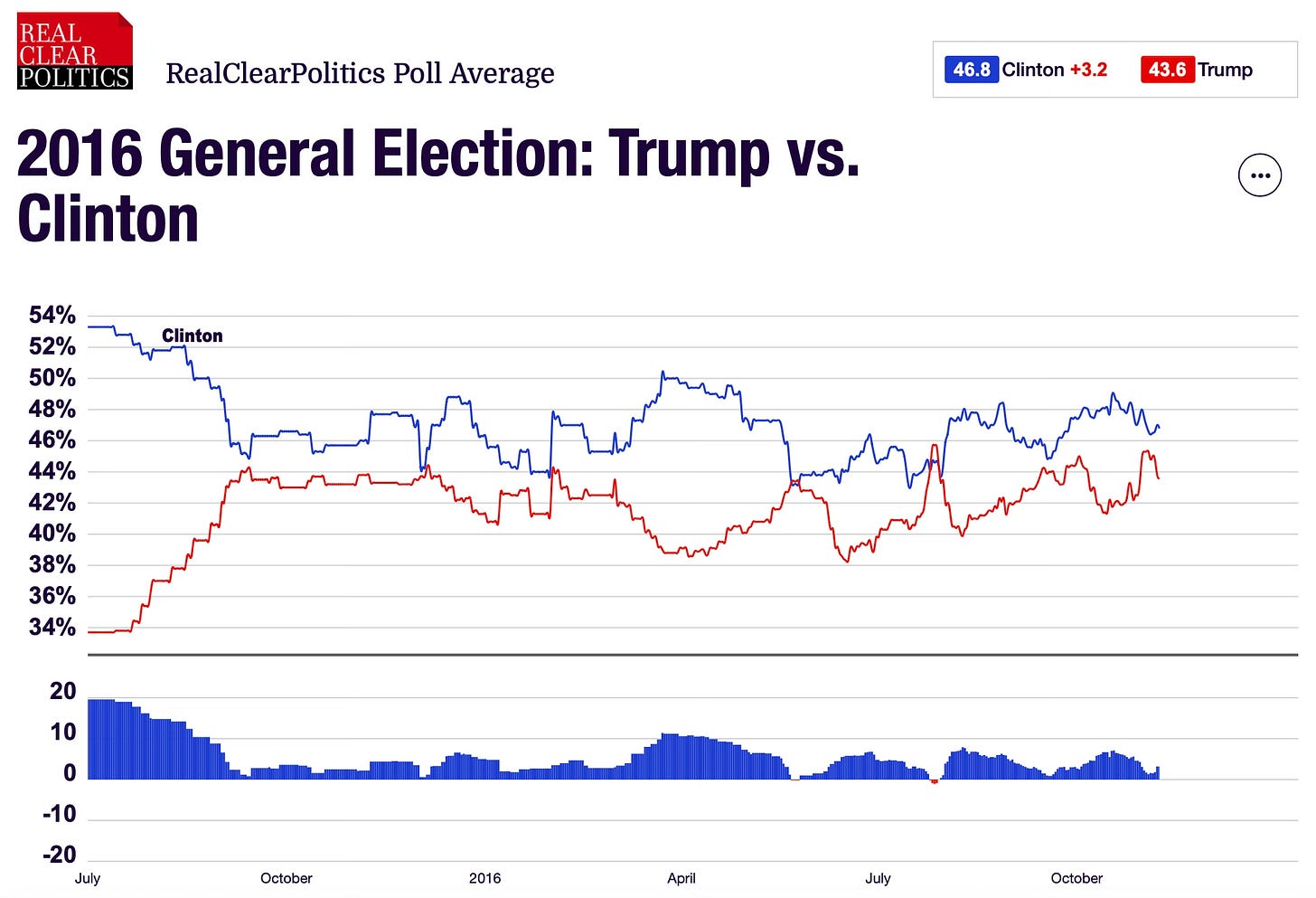
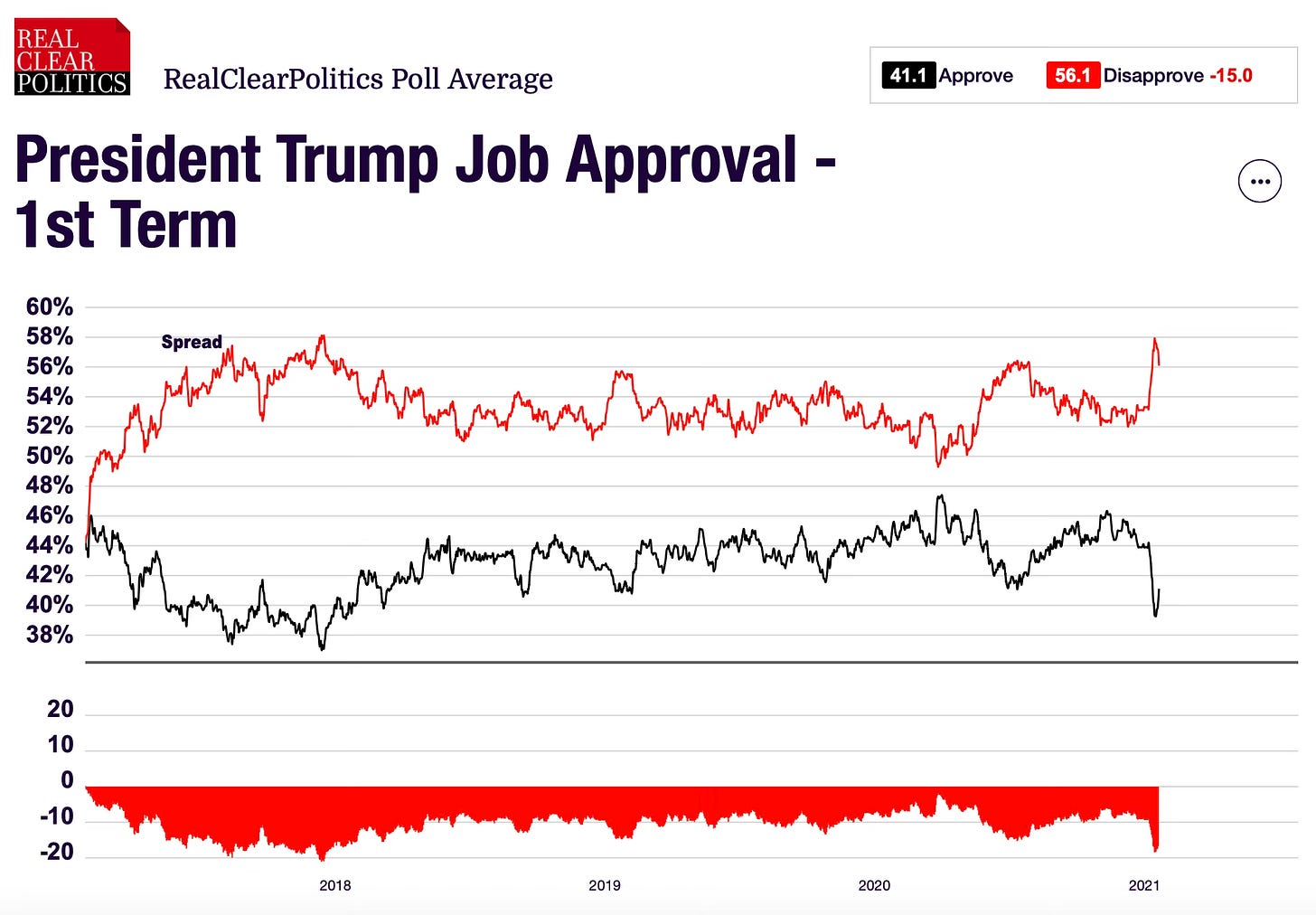
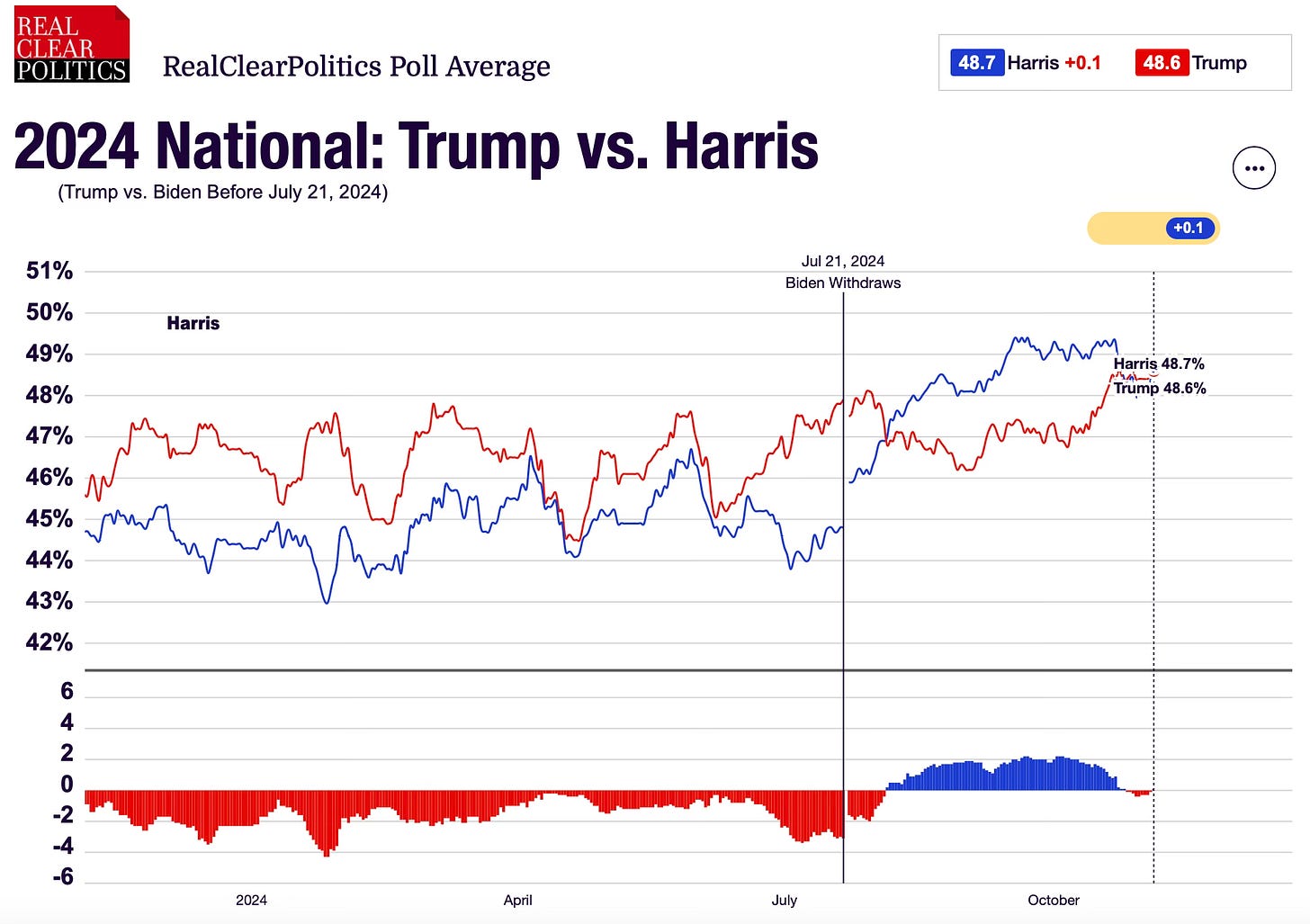
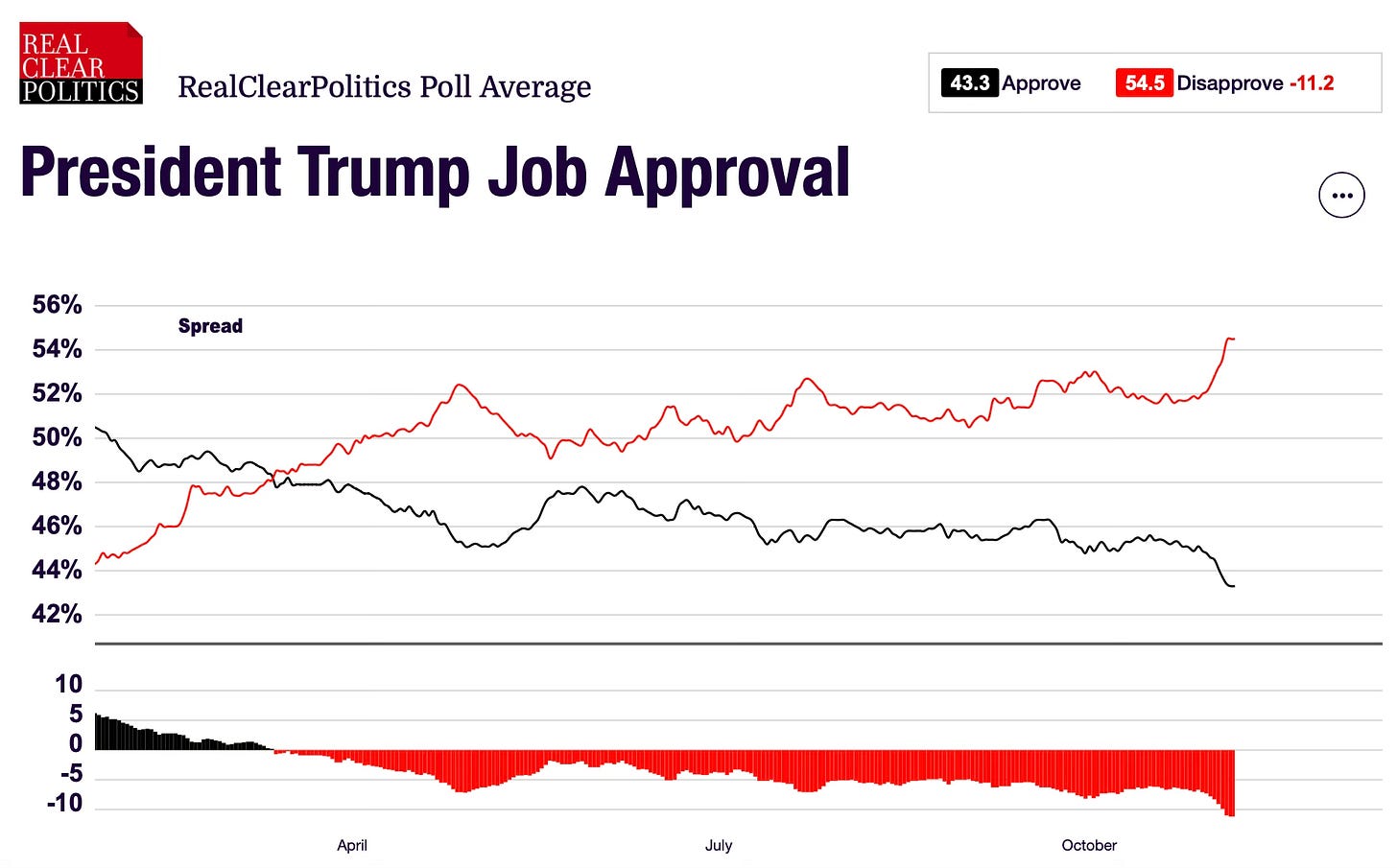
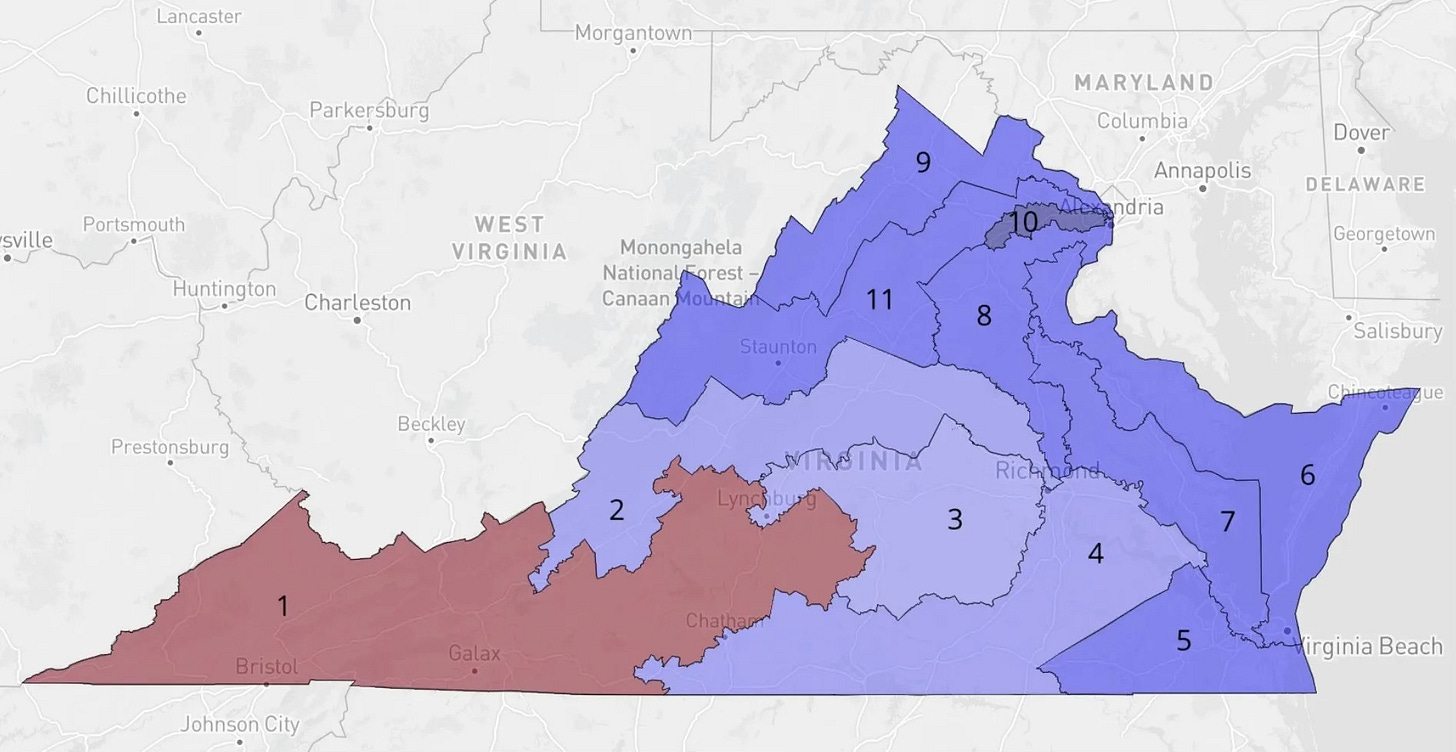
Great analysis. I also like the Anatomy of a Murder reference. :-)
"Simply put, Donald Trump won last November partly because many people did not know or did not believe what was actually happening in the world and what Trump was promising to do....
...He tends to become popular with the American public only for very short periods of time and only by a small margin—but two times now, that very short period has happened right at an election...."
Perhaps I speak only for myself but I don't think so. I think many people were well aware of what was actually happening in the world last November. And although Trump was much more of a wild card in November 2016, I think many people were well aware of what was actually happening in the world at that time, too. It continues to baffle me that you underestimate / gloss over / refuse to acknowledge just how awful the Democrats / Leftists / Collectivists were (and are) and how many Americans simply refused to vote for Hilary or Biden / Harris because they represent a party that is largely anti-American, rotten to the core and don't want to see the country on that path anymore. We could all see the near total takeover of MSM, cultural bullying and influence, destruction and indoctrination of education (universities a long time ago but all the way down with acceleration to K-12 with Obama), the behind the scenes sinister actions of supressing Free Speech (particularly during Covid and the strong-arming of social media) and then 4 years of blatantly trying to hide that Biden was mentally incapable of being POTUS (who WAS in charge?). That Trump has become popular at election time twice now shouldn't be a surprise given the hideousness of the entire D party when it comes time to choose continuation or a break. Even after Trump was considered dead and buried after mid-terms in 2022, he still came back to be the R candidate. Does that not tell you something about how much the Ds are disliked - and for good reasons?
I don't like Trump and I didn't vote for him in 2016 or in 2024 (but neither did I vote for Hilary or Harris - they were all horrible candidates). Interestingly, though, even though I wasn't happy that Trump had won, I was relieved after both elections to know that the Democrats had lost.
I am in my own circles vocally critical of many things Trump is doing. I am also willing to acknowledge several things he is doing which I very much support. I still don't have anything positive to say about the Ds (especially given they endorse candidates like Mamdani / Wilson in Seattle and some other horrifying individuals). Although I have fears about Vance, I do hope that other and better voices will become stronger once Trump is gone. I don't see any reason to think that the Democrats will veer from their collectivist course - they, I suspect, are likely to go even harder in that direction given the evidence.